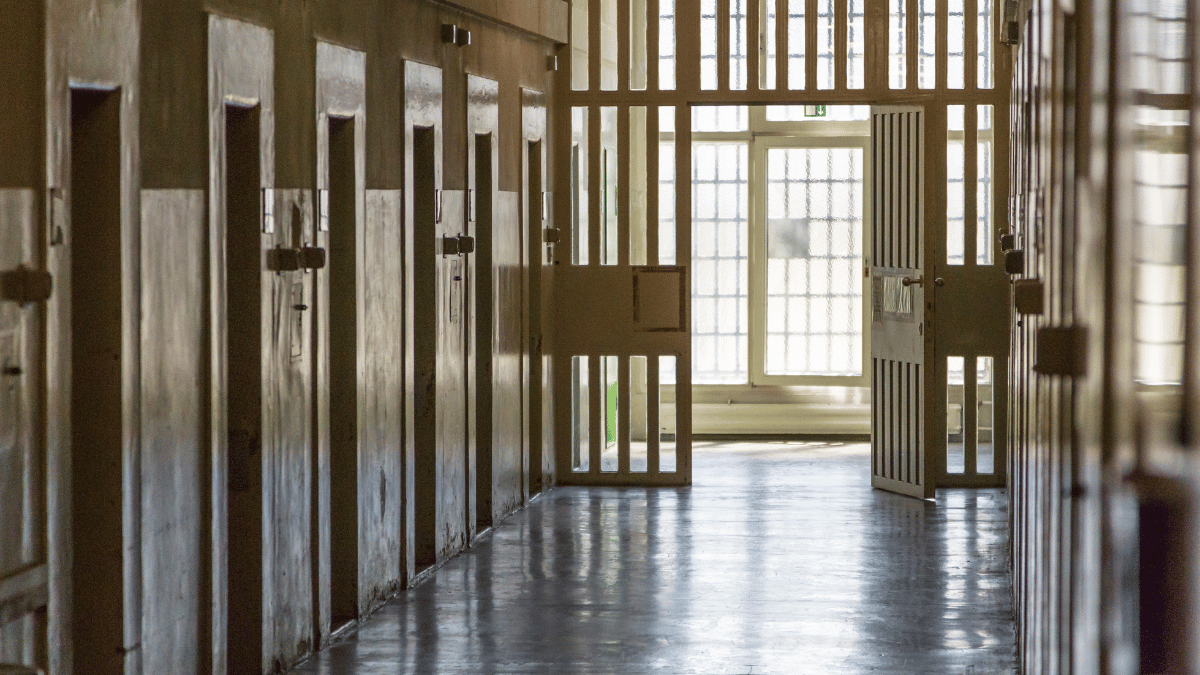Senators spent the first hour of what became a three hour Finance Committee meeting Tuesday night focusing on the budget of the Division of Corrections and Rehabilitation, which oversees the state’s prisons and jails.
The Senate Finance Committee met Tuesday night to hear budget presentations from the Department of Homeland Security and the Department of Education.
Senators spent the first hour of what became a three hour meeting focusing on the budget of the Division of Corrections and Rehabilitation, which oversees the state’s prisons and jails.
Corrections have struggled since the pandemic to maintain employees, with more than 1,000 vacancies for correctional officers in the system and a state of emergency requiring National Guard intervention. During the presentation, it was reported that the National Guard’s role filling administrative positions to free up correctional officers is costing $500,000 per week, and will lead to a $6 million budgetary shortfall for the division this year.
In response to questioning, William Marshall, commissioner of the West Virginia Division of Corrections and Rehabilitation, told Sen. Eric Nelson, R-Kanawha, it would take a pay raise of at least $10,000 for all correctional officers to make the position more attractive to future candidates.
“Easy math 4,000 [officers], $10,000 across the board. That’s a $40 million annual base builder,” Nelson said. “Pension benefits can be anywhere from 25 percent to 50 percent of compensation. If we were to potentially look at this correctly, would you agree that this is a $40 to $60 million base builder that we need to consider going forward?”
“You’re talking about not only base salary, but retirement?” Marshall replied. “Yes, I think a retirement plan would be very, very attractive. It’s hard. A lot of our officers we talked to, it’s hard to do that job forever.”
Marshall discussed the difficulty in retaining correctional officers not only because of the inherent risk of the job, but also because of competition from other correctional systems.
“We not only lose corrections officers to the federal system, but we also lose corrections officers to our bordering states as well,” Marshall said. “We lose a number of them to Maryland in the Eastern Panhandle quite often. They had a promotion about a year and a half ago, two years ago, with a $5,000 signing bonus and a $50,000 to $55,000 start pay.”
House Bill 2879, currently in the House’s Finance Committee, would provide existing correctional employees with three or more years of employment, a $6000 retention bonus and establish a $3000 sign-on bonus for new employees.
Marshall, with help from Executive Officer for the Division of Corrections and Rehabilitation Brad Douglas, explained to the senators that the state’s newest correctional facility, Lakin Correctional Center in Mason County, is already 20 years old. The oldest facility, Huttonsville Correctional Center in Randolph County, was built in 1938.
Marshall was appointed commissioner by Gov. Jim Justice two weeks ago.
Jeff Sandy, cabinet secretary for the Department of Homeland Security, fielded questions from Sen. Jason Barrett, R-Berkeley, about why there’s only $29 million in the governor’s budget to address the $200 million Corrections needs for deferred maintenance. Brian Arthur, assistant director of fiscal operations for administrative services, clarified that the $29 million is made up of $2 million that Corrections regularly receives for deferred maintenance, and a one-time allocation of $27 million to address a specific need.
“Senator, just so you’ll know, that $27 million is the locks which were broken as of late July of last year. So that does not replace every lock in corrections across the state,” Sandy said.
“What did your office request of the governor for deferred maintenance?” Barrett asked, seeking clarification.
“We have itemized what jobs need to be done: roofs, locks, etc. And the governor’s office makes the decision on what they feel the state could afford,” Sandy said.
“But you outlined that there’s $200 million in deferred maintenance?” Barrett continued.
“We have for six years sir,” Sandy said.
